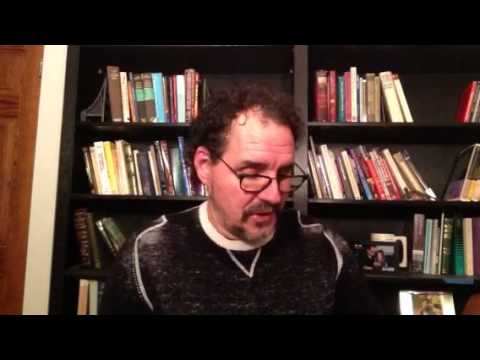We run our website the way we wished the whole internet worked: we provide high quality original content with no ads. We are funded solely by your direct support. Please consider supporting this project.

Free Will: What does Quantum Theory suggest?
Bet you didn’t think we’d be going here. Greg discusses how quantum theory supports the idea of free will.
Category: Q&A
Tags: Calvinism, Determinism, Free Will, Open Theism, Quantum Physics
Topics: Free Will and the Future, Providence, Predestination and Free Will
Related Reading

Lord Willing? Part 2
In Part 2 of Greg’s interview of Jessica Kelley about her book Lord Willing?, they discuss the theology that helped Jessica through her son Henry’s illness and death. You can find Part 1 of the interview here, and part 3 here.

The Future is Not Like the Past For God (or Us)
Image by seier+seier via Flickr Everyone agrees that we are not free to change the past. No sane person would claim, for example, that I can now make any free choices about whether John F. Kennedy will be assassinated or not on November 22, 1963. This deed, like all past deeds, has already been accomplished. Now consider,…

Support for Open Theism from Science and Experience
I have discussed the scriptural support that depicts the future as partially open and that God knows it as such. I do this in God of the Possible. If a position is true, every avenue of reflection ought to point in its direction, including science. What follows are two more “pointers” to the view that the…

What is the significance of 2 Samuel 24:17–25?
“So the Lord answered [David’s] supplication for the land, and the plague was averted from Israel.” The passage suggests that the Lord intended the plague to judge Israel further but David’s supplication persuaded him to change his mind and relent from his punishment. If the future is to some degree open and God is genuinely…

What is the significance of Exodus 13:17?
The Lord didn’t lead Israel along the shortest route to Canaan because Israel would have had to fight the Philistines. The Lord wanted to avoid this, “Lest the people change their minds when they see war, and they return to Egypt.” [NIV: “If they face war they might change their minds and return to Egypt”].…

In light of Einstein’s conclusion that time is relative, how can you believe that God is not above time?
Relatively Theory basically stipulates that whether an event is viewed as being in the past, present or future depends on where one is in relation to the event in question as well as how fast one is moving. Some people conclude from this that Relativity Theory lends support to the classical view of God in…
